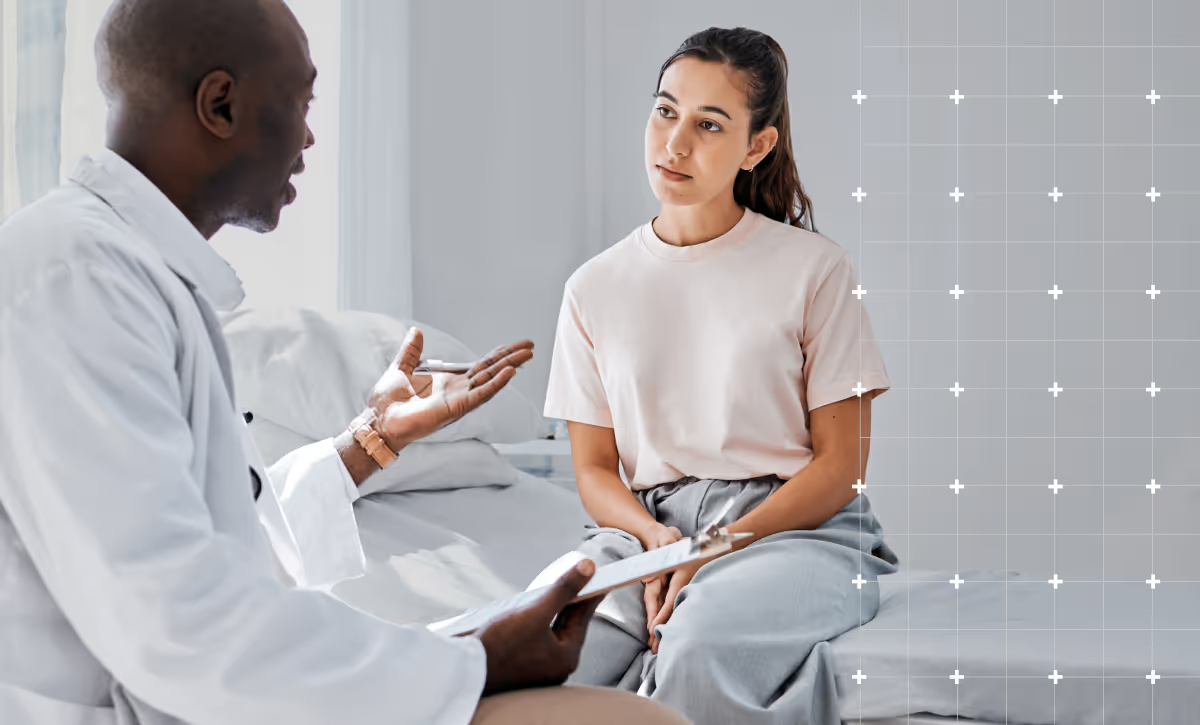Today, we’re thrilled to announce a partnership with CCRM Fertility that will greatly expand access to high-quality fertility care for prospective parents who have Carrot as a workplace benefit. CCRM Fertility is one of the industry's leading pioneers in fertility science, research, and advancement, offering access to a national network of award-winning physicians, a full suite of fertility services, innovative technology, and cutting-edge labs. The partnership gives Carrot members access to better pricing at nine CCRM Fertility centers and 19 offices in major metropolitan areas throughout the U.S., including Atlanta, Boston, Dallas-Fort Worth, Denver, Houston, New York, Northern Virginia, Minneapolis, and the San Francisco Bay Area.
Patricia Marshall, Carrot’s Vice President of Global Member Operations, commented on the news, saying, “Choosing the right clinic is one of the most critical and stressful aspects of a fertility journey. This partnership with CCRM Fertility means that members will not only begin their journey at a world-class fertility clinic, it ensures they will have the highest quality care every step of the way which results in better clinical outcomes.”
John Pardew, president and CEO of CCRM Fertility added, “At CCRM Fertility, we are deeply committed to delivering compassionate, superior patient care and utilizing evidence-based, cutting-edge technology to provide anyone who wants a baby with the very best chance to do so. By partnering with Carrot Fertility, we are helping to remove the financial barriers to treatment expanding access to industry-leading fertility care to more families across the nation.”
We sat down with Dr. Sunny Jun, CCRM San Francisco Co-founder and Co-medical Director and board-certified reproductive endocrinologist, to discuss some of the most common questions people ask before beginning their fertility journeys.
When should someone seek help from a fertility specialist?
The general rule is if you are under the age of 35 and have been trying for 12 months to get pregnant without success or if you’re age 35 to 37 and have been trying for six months without success, you should see a fertility specialist. If you are closer to 38 and above, it isn’t a bad idea to undergo fertility assessment before starting your journey, especially if you want more than one child.
Even if you are not currently trying to get pregnant but would like to get a sense of your fertility health, you can meet with a fertility specialist and undergo a fertility assessment. This could provide you with vital information about your reproductive potential. Depending on your circumstances, you might want to consider egg or embryo freezing.
If you’re LGBTQ+ or a single person interested in becoming a parent, meeting with a fertility doctor can help you explore the various treatment options available to grow your family.
What tips do you have for someone trying to find a fertility clinic?
When evaluating fertility clinics, a good first step is to find out if the clinic is a member of Society for Assisted Reproductive Technology (SART) and review the clinic’s live birth success rates. The success rates can be further discussed with each fertility center. Fertility clinics that are members of SART must adhere to the highest standards for quality, safety, patient care, and even advertising. In addition, clinics must report all birth outcome data, which is then audited by SART. Clinics that are not SART members are, unfortunately, not held to the same standards.
It's important to remember that not all IVF labs are created equal. At CCRM, our expertise and dedication to lab operations continuously helps us to achieve some of the highest IVF with comprehensive chromosome screening (CCS) live birth rates in the U.S.
How can someone prepare for their first appointment with a fertility doctor?
Before you meet with a fertility doctor, either in person or via a telehealth consult, I recommend writing down all of the questions you have. Then, bring a notepad to your appointment so you can take notes during the appointment itself. The first appointment might seem a little overwhelming, so having notes to refer to and look back on after the appointment can be quite helpful.
Prior to your first appointment, you should also gather your medical, surgical, and family health history. This includes obtaining records for prior fertility testing or treatments.
If you have a partner, we recommend they attend the first appointment as well. They are an important part of the fertility equation!
What can someone do to increase their chances of success when going through fertility treatment?
Lifestyle habits, such as diet and exercise, can play an important role in your fertility. When trying to have a baby, it is important to cease smoking, cut down on the caffeine and alcohol, get adequate sleep, and aim to have a healthy BMI (body mass index). Being overweight or underweight can negatively impact your fertility. Also, we believe certain vitamins and supplements along with fertility acupuncture may help with our treatments as well.
If you’re a Carrot member and would like to speak with our Care Team about finding a provider, log into your Carrot app and connect with your Care Team.













